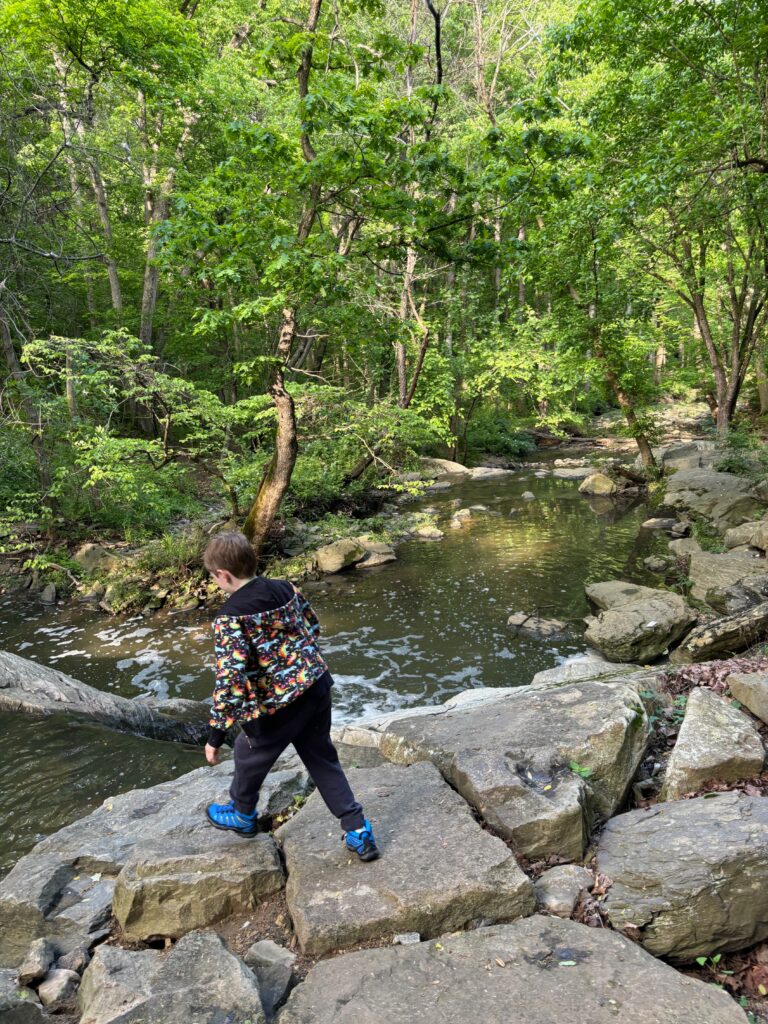
“The seasons go round and round / the painted ponies go up and down / on the carousel of time….” I crooned softly to myself, looking out my back porch. Joni Mitchell’s song The Circle Game echoed in my head, one of the few guaranteed to make me choke up. For those not familiar, it’s about a child growing up, with each verse describing a different stage of childhood.
In the past, I heard it and was sad about the child growing up. How terrible to have to leave each of those ages behind, especially as that child’s parent?
At that time, I had bought into the idea of “you only have 18 summers with your kids!” I was obsessed with being there with them, giving them my full attention every second I wasn’t at work. Every moment had to be Meaningful. I had overwhelming guilt when I went for a run or did something for myself if they weren’t napping or occupied by screen time. My kids stopped napping as soon as they moved out of cribs and we only allow them about an hour of screen time a day, so it was asking so very much of myself as a mom. Too much. Then COVID hit and there was zero transition time between work and kid time. This false urgency – the belief that if I don’t build our relationship Right Now, I never will – took up all my headspace, spiked my anxiety, and burnt me out.
But now I try to embrace a healthier mindset. Instead of time as linear, with the past gone forever, I’m trying to think of it in cycles. This idea is far from new – it’s probably older than the idea of linear time. It follows the seasons, the sunrise and sunset, the many rhythms of nature. Many Indigenous people still discuss time in terms of cycles today.
This idea of time in cycles has showed up various ways in my life and influences, from the practices Robin Wall Kimmerer discusses in Braiding Sweetgrass to the famous passage in Ecclesiastes in the Bible. After the endless uncertainty of the first few years of COVID, these seasons have a comforting reliability.
The beautiful thing about thinking of time in cycles is that it counteracts that toxic sense of false urgency. You always have the chance to try again. If you screw up with your parenting today, there will another day tomorrow. You didn’t have a magical holiday season? Christmas will come again next year. It’s not “you only have 18 summers;” it’s “you have a whole 18 summers!” That carousel of time will come back around.
But even beyond having another chance to do it over, you will be a little further along each time. My friend and activism collaborator
Ashia Ray has a concept they call “spiral praxis.” The idea is that you have times of doing work and resting. For them, that cycle matches the natural seasons, but it can differ to meet your needs. When you return to the work, you know a little more and carry the lessons with you that you learned in the last season. Instead of a straight line of progress, it’s a spiral upward. (If you want to learn more, sign up for Ashia’s upcoming Summer Luminator Collective!)
Time is short and our society wants us to waste it on busy work. But knowing this doesn’t mean we should try to make the most out of every single second. We should spend time on what we value but not obsess about it. Instead, we should be like the child on the carousel, enjoying the ride, reaching for the golden ring but knowing we’ll come back if we miss it this time around.